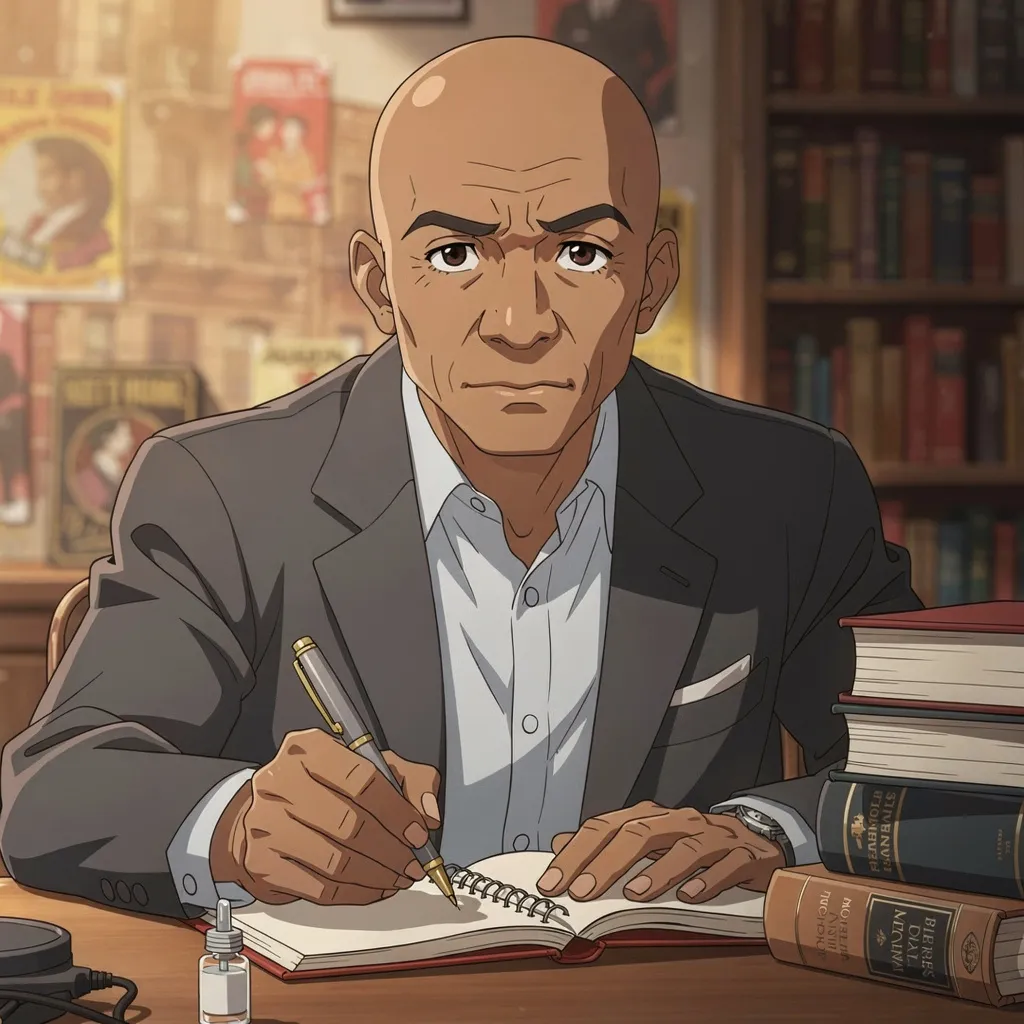
James Baldwin
1924-1987
An American writer who used powerful words to explore fairness, identity, and understanding.
Early Life
James Baldwin was born in 1924 in Harlem, New York City. Harlem was a lively neighborhood full of music, art, and strong community spirit. James grew up in a large family and learned early how important words could be.
As a child, James loved reading and visiting the library. Books helped him understand the world and imagine new possibilities. He also discovered that he was very good at writing and speaking.
Discovering His Voice
When James was a teenager, he became a preacher at his church. Speaking in front of people helped him learn how to use language in a powerful way. Later, he decided that writing would be his true path.
James worked hard and kept writing, even when life was difficult. He believed that stories could help people understand each other better and bring change.
Becoming a Famous Writer
James Baldwin wrote novels, essays, and plays. Some of his most famous books include *Go Tell It on the Mountain* and *Notes of a Native Son*. His writing was honest and thoughtful, and it made many people stop and think.
He often wrote about fairness, kindness, and the importance of treating everyone with respect. His words helped readers see the world from new points of view.
A Voice for Understanding
During the 1950s and 1960s, James Baldwin spoke about civil rights, which means making sure everyone has equal rights. He gave speeches and wrote essays that encouraged people to listen to one another and work together.
James believed that learning and empathy could help solve big problems. He used calm but strong words to share his ideas.
Legacy
James Baldwin is remembered as a brave and thoughtful writer. His books are still read in schools and libraries today. Many people say his writing helps them better understand themselves and others.
His life shows that words can be powerful tools for change. James Baldwin proved that sharing your voice can make a lasting difference.
🎉 Fun Facts
James Baldwin loved spending time in libraries.
He moved to France for several years to focus on writing.
James started his career as a preacher before becoming an author.
Many of his essays began as letters or notes to friends.
His books are still studied by students around the world.